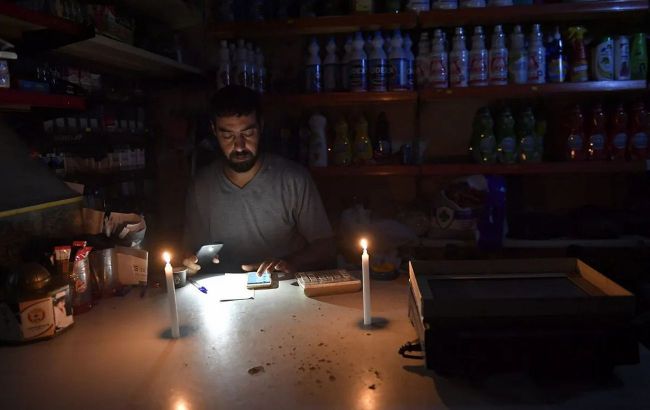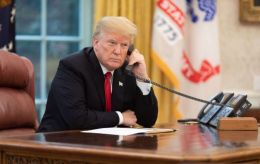Lebanon faces complete power outage
 Photo: Lebanon plunged into darkness (Anadolu Agency)
Photo: Lebanon plunged into darkness (Anadolu Agency)
A deep financial crisis and regular aerial duels between Hezbollah fighters and Israel have led to a complete power outage across Lebanon, according to Bloomberg.
According to the state energy company, the widespread blackout in Lebanon was caused by a shortage of gas oil, exacerbated by increased cross-border shelling between Hezbollah and Israel.
Electricite Du Liban (EDL) reported that the last generator unit at the Zahrani power plant was forced offline. This power outage is expected to affect airport operations, ports, water pumps, sewage systems, and the country’s prison facilities.
EDL assured that once the oil supply is restored, power generation will resume and electricity supplies will return to previous levels. Lebanon's Energy Minister Walid Fayyad stated that electricity could be restored within 24 to 48 hours.
The blackout occurred shortly after Hezbollah launched a rocket salvo at Israel. This attack was in retaliation for an Israeli military strike that resulted in the deaths of 10 Syrian nationals and injuries to five others in southern Lebanon.
Shelling between Lebanon and Israel
On Saturday, Israel conducted airstrikes on southern Lebanon, targeting a residential building in the city of Nabatieh. The attack resulted in approximately 10 deaths, including two children, and five injuries.
Preliminary reports indicate that all victims were Syrian nationals. The final death toll will be confirmed following DNA testing to identify the deceased.
Israeli military officials stated that the airstrike targeted a weapons cache used by Hezbollah fighters.
In response, Lebanese militants claimed responsibility for a strike on Kibbutz Ayelet HaShahar in northern Israel.
Israeli forces reported that two soldiers were injured in the rocket attack from Lebanon. They noted that a total of 55 rockets were fired during recent hostilities from Lebanon.
Financial crisis
Since late 2019, Lebanon has been grappling with its worst financial crisis in decades. The government defaulted on external debt and has failed to implement necessary measures to secure foreign aid.
The Mediterranean country, with limited financial resources, has long suffered from severe power rationing. Political disputes halted plans for major repairs in the energy sector, and during the current financial crisis, power supply disruptions have worsened.
Lebanese households and institutions already rely on private backup generators due to inefficient management and corruption that have prevented EDL from providing round-the-clock electricity for years.
According to Fayyad, as Lebanon’s foreign currency reserves diminish, the central bank has stopped transfers to cover fuel imports.
Escalation between Lebanon and Israel
On July 27, Hezbollah troops launched rockets at a soccer field in the Golan Heights in Israel, killing 12 people and injuring dozens, including children.
On July 31, the Israel Defense Forces killed one of Hezbollah’s leaders, Fuad Shukr, in Beirut, and later eliminated senior Hamas commander Samer Mahmoud al-Haj in Lebanon.
Since then, rocket exchanges between Israel and Lebanon have significantly intensified.
On July 16, Hezbollah targeted northern Israel, and the Israel Defense Forces responded with extensive rocket strikes on southern Lebanon.

